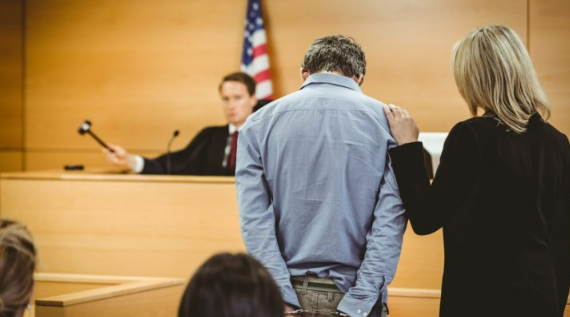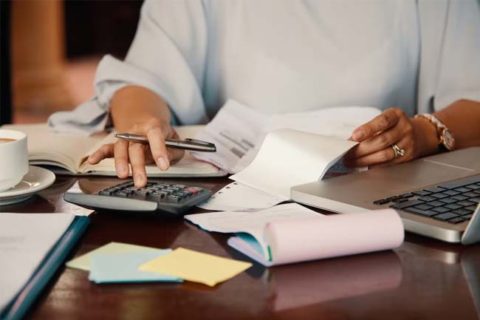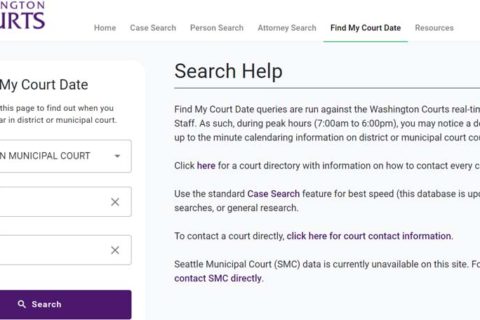Do you need help to manage a will or a contract? Or you are facing several sorts of legal jeopardy, hiring a lawyer can be expensive. Well, here we are going to explain how to get free lawyers for low-income families in the United States.
According to research, most lawyers charge between $150 and $300 an hour. Of course, that can feel prohibitive if you really need a lawyer to get you out of a legal jam or protect your own assets, but you do not have any money to spare.

Here are several reasons you may need a lawyer:
- Family law issues, like a divorce.
- Estate planning.
- Personal injury.
- Criminal charges.
- A restraining order.
- You will go bankrupt.
In a criminal proceeding, if you cannot afford legal assistance, then a court is going to appoint a lawyer for you. In a civil case, usually described as a dispute between two private parties, to get legal representation, you must get creative.
Finding Free Legal Help
If you cannot afford a lawyer, here are several ways to try:
- Contact the city courthouse.
- Seek free lawyer consultations.
- Look to legal aid societies.
- Visit a law school.
- Contact your county or state bar association.
- Go to small claims court.
Depending on your situation, you can employ a variety of ways to get free legal advice or cheap legal assistance. Read on for more information on each option.
Way 1: Contact the City Courthouse
Andrea Vacca, a divorce attorney in New York City, says at least with divorces, several courts offer free assistance to parties who really want to fill out their uncontested divorce paperwork. However, whether it is a divorce or something else bringing you to court, if you do not have a lawyer, the best choice is to contact the courthouse and ask what resources are available.
Way 2: Seek Free Lawyer Consultations
Several lawyers offer free consultations, typically by phone or video conference. Even if it is only a 15-minute call, you may at least get a better sense of what you are in for. Also, you might be able to get several guidance on who can help you for free or if there is a cheap lawyer, or at least an affordable lawyer, that you are able to hire.
Way 3: Look to Legal Aid Societies
Legal aid society is a nonprofit organization that provides free legal services to low-income people. Although this is surely worth exploring, the issue for many households is that they make too much money to qualify for help. If you have a low income, it does not mean you are going to receive legal aid. According to research, a nonprofit organization built by Congress to make sure equal access to justice for all Americans, 85% of the civil legal issues reported by low-income Americans did not receive adequate legal help. But many people are eligible. A LSC report revealed that in the year of 2019, the latest year for which data is available, around 53.9 million Americans were eligible for LSC-funded civil legal aid. You are able to find more ideas at the official site of LawHelp, a nonprofit aimed at connecting people with low and moderate incomes to free legal aid programs in their own communities.
Way 4: Visit a Law School
Also, you are able to consider hiring a law student to give you advice. Lots of law schools have programs in which law students offer legal advice for free. For your information, schools that offer such programs include Appalachian School of Law, American University, Arizona State University, Tulane University, Howard University, and many others. If you have a university in your area with a law school, then you are able to check to see if legal aid is available.
Way 5: Contact State Bar Association
The Akron Bar Association is an example of what’s available. You are able to contact the second and fourth Fridays of each month from 9 a.m. to 11 a.m., and they are going to answer legal questions for free. If you need advice which does not fit in that window, then the association will offer a 30-minute consultation with a lawyer for $30, and for certain topics, for example, Social Security, unemployment, workers’ compensation and among others. They are going to offer the 30-minute consultation freely.
Way 6: Go to Small Claims Court
Unfortunately, this is not a viable choice for everyone. For example, you cannot go to small claims court if you are trying to work out your financial affairs after a divorce. However, if the stakes are fairly low and someone owes you money or is attempting to collect money from you, and it is not worth risking lawyer fees, you are able to consider small claims court. Your home state is going to dictate how high the stakes are. For example, in Delaware, the most you are going to be awarded or lose is $25,000, in Rhode Island, the amount is $5,000.
About Legal Help
Legal help is the distribution of legal aid assistance to individuals who cannot finance legal representation from the court system and are in need of access to the legal system.
The programs below offer a variety of ways to get legal aid. Several limit their services to people with low incomes.
- Legal Services Corporation
Find legal help in your community for people with low incomes.
- LawHelp.org
Find free legal help near you and get answers to your legal questions. The services are for people with low to moderate incomes.
- Law Help Interactive
This program will help you fill out legal forms for free, such as those dealing with:
- Uncontested divorce
- Identity theft
- Visitation rights
- Landlord or tenant disputes
- American Bar Association Free Legal Answers
This website lets people with low incomes ask questions online and have a lawyer answer them.
- Directory of Law School Pro Bono Programs
Lots of law schools have formal pro bono programs. You are able to search for ones in your state.

A bookworm and researcher especially related to law and citizenship education. I spend time every day in front of the internet and the campus library.





